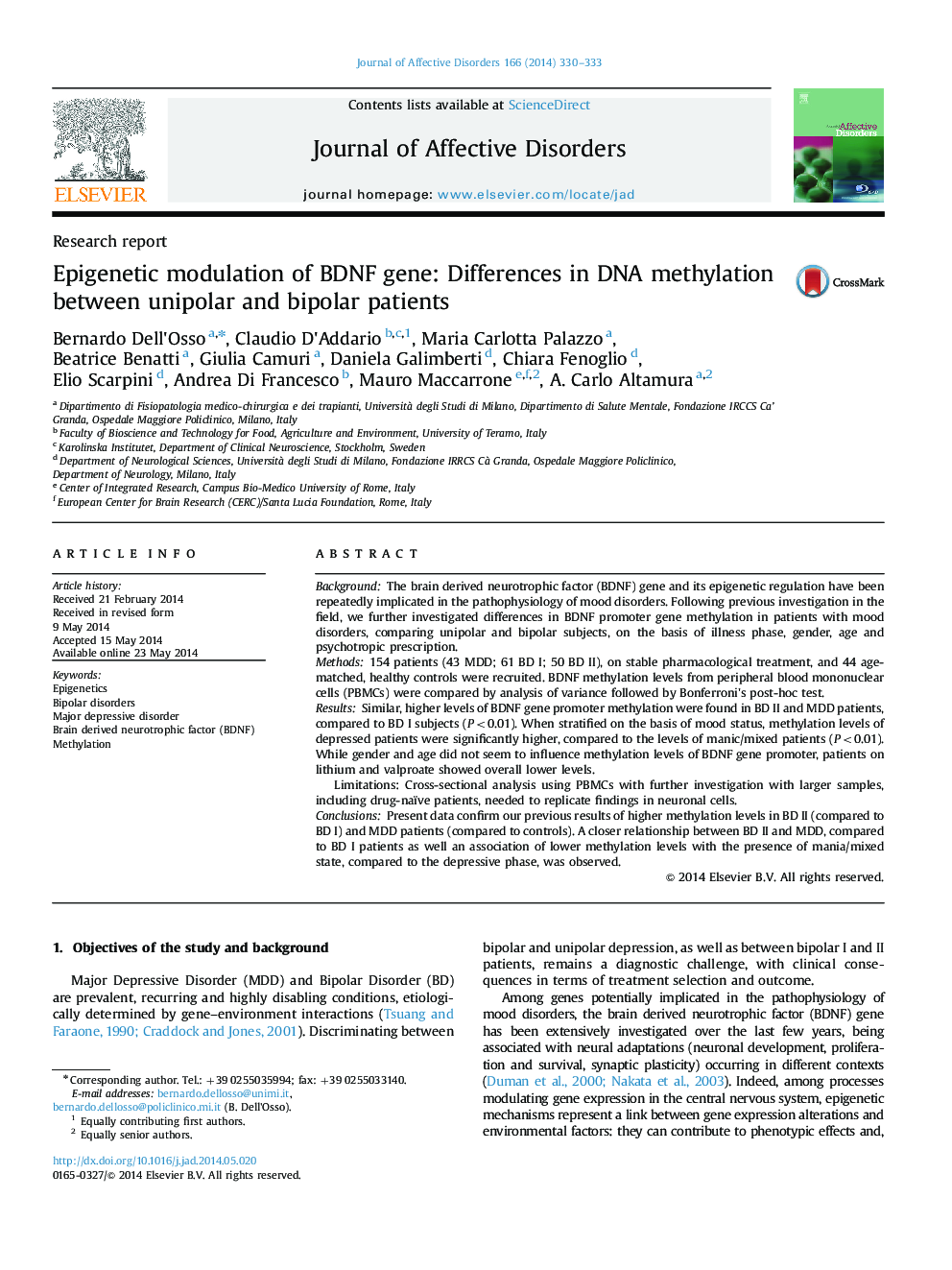| Article ID | Journal | Published Year | Pages | File Type |
|---|---|---|---|---|
| 6232568 | Journal of Affective Disorders | 2014 | 4 Pages |
BackgroundThe brain derived neurotrophic factor (BDNF) gene and its epigenetic regulation have been repeatedly implicated in the pathophysiology of mood disorders. Following previous investigation in the field, we further investigated differences in BDNF promoter gene methylation in patients with mood disorders, comparing unipolar and bipolar subjects, on the basis of illness phase, gender, age and psychotropic prescription.Methods154 patients (43 MDD; 61 BD I; 50 BD II), on stable pharmacological treatment, and 44 age-matched, healthy controls were recruited. BDNF methylation levels from peripheral blood mononuclear cells (PBMCs) were compared by analysis of variance followed by Bonferroni׳s post-hoc test.ResultsSimilar, higher levels of BDNF gene promoter methylation were found in BD II and MDD patients, compared to BD I subjects (P<0.01). When stratified on the basis of mood status, methylation levels of depressed patients were significantly higher, compared to the levels of manic/mixed patients (P<0.01). While gender and age did not seem to influence methylation levels of BDNF gene promoter, patients on lithium and valproate showed overall lower levels.Limitations: Cross-sectional analysis using PBMCs with further investigation with larger samples, including drug-naïve patients, needed to replicate findings in neuronal cells.ConclusionsPresent data confirm our previous results of higher methylation levels in BD II (compared to BD I) and MDD patients (compared to controls). A closer relationship between BD II and MDD, compared to BD I patients as well an association of lower methylation levels with the presence of mania/mixed state, compared to the depressive phase, was observed.
